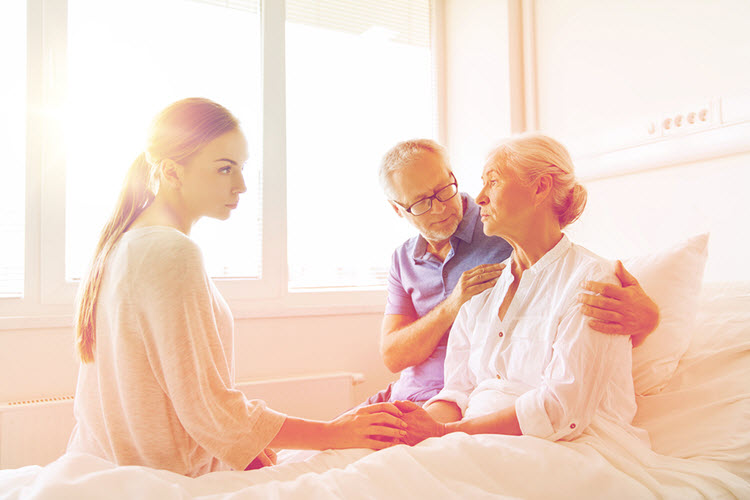Being a cancer survivor is like being part of a club you never want to join. But you don’t want to lose your membership either.
I am blessed in this new career of mine, to meet professionals that are caring, collaborative, and supportive. And then you run across an organization like Cancer Hope Network (CHN) and my gratitude meter goes off the charts.
Getting a cancer diagnosis can be time-stopping, world-spinning, forcing you to make choices between treatment options, worrying about side effects, and facing fears about the future. It is, as they say, a lot.
This is where Cancer Hope Network comes in. For over 30 years, this organization has provided one-on-one support for cancer patients and their loved ones. As Executive Director Wanda Diak will tell you: “Talk with someone who’s been there. Because no one should face cancer alone.”
More than 1.6 million new cases of cancer will be diagnosed this year. Millions more will be treated. If you’re reading this post, chances are, you’ve experienced a moment like the ones below. If you haven’t, your loved one has.
- After weeks (months!?) of tests and scans and sleepless nights spent worrying, the doctor sits across the desk from you, looks up from the chart on her desk and says, “Unfortunately, it’s cancer.”
- Your care team recommends a new treatment protocol. You’ve heard horror stories of the side effects it brings.
- Your beloved spouse has reached an especially difficult point in their treatment. As a caregiver, you find yourself physically and emotionally exhausted.
Faced with any of these situations, CHN has trained cancer survivors and their caregivers as Support Volunteers in both the United States and Canada. There are over 400+ volunteers that have faced more than 80 cancer types and speak over 15 languages. Support Volunteers have completed courses of chemotherapy and rounds of radiation, helped pioneer treatments and medications as clinical trial participants, received stem cell transplants, faced bisections, ostomy bags and surgeries. They’ve battled the crippling fear of leaving their children alone and grappled with the heart-wrenching realization they may never have children of their own.
Patients and caregivers who contact CHN work with a member of the Patient Services Team to connect with the Support Volunteer whose experience most closely mirrors their own. Your connection may be based on a diagnosis or treatment protocol. Matches happen over the phone and sometimes in person.
Through your connection with a Support Volunteer, you will gain insight from someone who has been through it. Needs are different in different stages during this cancer journey and support is available for each stage. You may learn:
- How eating ice chips can help
- How they are living with cancer’s new normal, like moving more slowly
- How they are working through the challenges of survivorship, from someone that understands the fine balance between gratitude and the survivors’ guilt faced by the “lucky ones” who are here to talk about it
- How to get back into the workforce
Maybe the most important result provided by this connection, is hope. Whatever the challenge, chances are a CHN Support Volunteer has faced it and are willing to share.
Being a cancer survivor is like being part of a club you never want to join. But you don't want to lose your membership either. Share on XTake Support Volunteer Anne, a retired school secretary with grandchildren in Alabama. She’s a bladder cancer survivor who cared for her beloved husband through his last days of his own fight with bladder cancer. She encourages patients to keep the faith, “They’re coming out with new research, new information and drugs every day.” She’s also a voice of reason, reminding caregivers “You have to call and get help…You’re a person. You’re a human. You simply cannot do it alone.”
Others are survivors like Karla, a 7-year stomach cancer survivor who found purpose in sharing the lessons she’s learned. “Now that I had learned to eat and survived, I wanted to help.”
It’s a commitment that pays off with satisfied, encouraged patients. “If all your volunteers are like the one I spoke to, then you have exceptional people volunteering for you,” reads one patient survey. “That make the illness I’m going through easier to contend with!”
“My volunteer was very informative and eased my real fears about my CLL,” another recalls. “It was wonderful speaking with someone dealing with the same blood-related disease. His knowledge helped to calm my nerves.”
You may contact Cancer Hope Network by calling 877-HOPENET (877.467.3638) or visiting http://www.cancerhopenetwork.org/.
Disclaimer: The material in this blog is for educational purposes only. It is not intended to replace, nor does it replace, consulting with a physician, lawyer, accountant, financial planner or other qualified professional.

